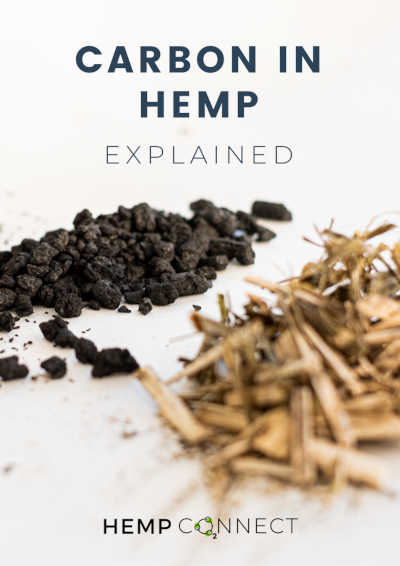Industrial hemp can help large companies to decarbonize their supply chains, but rigorous certification programs are needed if the plant is to reach its full potential as a nature-based solution to climate change.
With the Carbon Dioxide Removal (CDR) sector still emerging, certified carbon credits continue to be in short supply, indicating a clear opportunity for hemp, according to a new paper from HempConnect, a Hamburg-based provider of carbon-accounting services that also supports hemp stakeholders develop biochar operations.
Need to scale. Fast.
“The CDR sector needs to scale with unprecedented pace and hemp can be a powerful ally in this challenge, allowing for crucial complementary benefits on sustainable development,” the report observes. “The industrial hemp sector absorbs large amounts of CO2 and has enormous potential to supply CDR certificates, yet there has not been any report on a single credibly traded high-integrity certificate from hemp.”
The CDR industry is expected to grow rapidly in the coming years. The International Energy Agency (IEA) estimates that the global market for CDR could reach $100 billion by 2050, driven by the increasing need to mitigate climate change and the development of more cost-effective CDR technologies.
CDR certificates sell at a minimum of around $100 per ton of CO2, according to Nando Knodel, HempConnect Co-CEO.
CDR vs. offset
CO2 savings under CDR industry are calculated by subtracting any greenhouse gas created through processing from that absorbed by hemp plants, for example, to arrive at net-negative emissions. Offsetting, on the other hand, is based on avoided or reduced emissions that are not necessarily net-negative.

‘This report sheds light on the opportunities for industrial hemp to participate in the CDR space as a nature-based solution.’
Sign up to read the full report
The difference is crucial, according to the paper:
“The commonly known term ‘offsets’ has already suffered immense media image loss. Since the early days of carbon offsetting, the voluntary sector was characterised by certificates of problematic quality that rapidly caused a race-to-the-bottom market logic.”
‘Critical’
“Buyers of offsets, who most often claim climate neutrality, contribute to reducing emissions but not net-zero,” Knodel said. “Buyers of CDR actually neutralize emissions and support net-negative technologies. If we are to achieve a net-zero economy, CDR will be critical.”
In addition to hemp’s potential as a “self-offsetting” agricultural commodity, CDR based on hemp “can be implemented in the short term,” according to the paper.
“No industry can afford to exempt itself from this collective effort that humanity has to undergo,” the paper observes.

